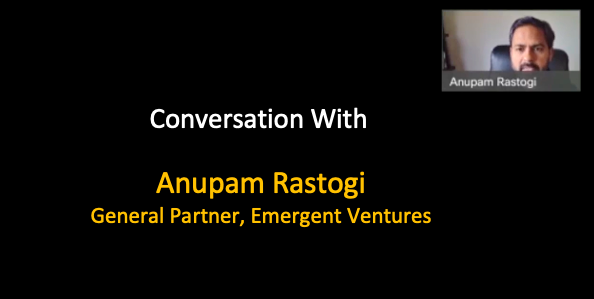Seed Capital
Best of Bootstrapping: Bootstrap First, Raise Money Later

If you haven’t already, please study our Bootstrapping Course and Investor Introductions page.
I wrote a book called Billion Dollar Unicorns a few years back. Writing this book took me through the extensive process of talking to entrepreneurs who have built tech companies with valuations above a billion dollars. While there is a tremendous amount of serendipity involved in any extraordinary success story, one recurring theme comes up in these case studies. I am particularly excited to share this nugget because it applies broadly to all classes of entrepreneurial ventures.
Bootstrap first, raise money later.
That’s what Fred Luddy did when he founded ServiceNow back in 2005. Leveraging his domain knowledge and expertise in IT ServiceDesk software, he rapidly acquired 12 customers before raising funding. Initially, he started charging $25 per seat and the 12 customers paid up. He raised $2.5 million in venture capital WITH 12 customers, and ample validation.
Soon they clocked $850,000 in revenues in their first year as a real company. In 2010, they had grown to $45 million annual revenue run rate with 350 enterprise customers. They ended fiscal 2013 with revenues of $424.7 million.
Prior to listing on the NYSE in 2012, ServiceNow was venture funded with $83.7 million in investments received from JMI equity, Greylock Partners, and Sequoia Capital. They raised $162 million in their IPO. Soon after listing, ServiceNow had touched a valuation of $3 billion. Since then, the stock has skyrocketed. It is currently trading at $234.03 with a market capitalization of $41.96 billion. Clearly, a mega hit Unicorn that started, however, by bootstrapping first.
570th 1Mby1M Entrepreneurship Podcast with Anupam Rastogi, Emergent Ventures
Anupam Rastogi is General Partner at Emergent Ventures, a firm focused on B-to-B tech investments.
Podcast: Play in new window | Download
Subscribe: Apple Podcasts | Android | Google Play | Stitcher | TuneIn | RSS
570th Roundtable Recording with Anupam Rastogi, Emergent Ventures
In case you missed it, you can listen to the recording of this roundtable here:
1Mby1M Virtual Accelerator Investor Forum: With Gans Subramanian, Managing Partner at Hourglass Venture Partners (Part 2)
Sramana Mitra: Let’s do a couple of examples to illustrate what you’re saying with some more visceral understanding. Pre-seed is a very interesting field of investment. There aren’t that many pre-seed funds.
Gans Subramanian: There’s another company in the cybersecurity space. These founders have a clear view of the problem. They are technical founders and have a path to $100 million in 24 to 36 months. This is pre-seed. The founders have been talking to us for the last six months.
>>>Roundtable Recap: April 7 – Spotlight on Pre-seed Funding

During this week’s roundtable, we had as our guest, Anupam Rastogi, General Partner at Emergent Ventures, a firm focused on B-to-B tech investments.
You can listen to the recording of this roundtable here:
1Mby1M Virtual Accelerator Investor Forum: With Rahul Chandra, Managing Director at Arkam Ventures (Part 1)

Rahul Chandra, Managing Director at Arkam Ventures, is a veteran of the Indian Venture Capital industry. This discussion spans historical context to the current Unicorn mania. Great analysis!
>>>1Mby1M Virtual Accelerator Investor Forum: With Gans Subramanian, Managing Partner at Hourglass Venture Partners (Part 1)

Gans Subramanian, Managing Partner at Hourglass Venture Partners, is a former 1Mby1M Premium member who has now formed his own venture fund.
>>>1Mby1M Virtual Accelerator Investor Forum: With Naganand Doraswamy, Managing Partner and Founder at Ideaspring Capital (Part 4)
Naganand Doraswamy: The fourth one is, we want to ensure that we have visibility for $10 million to $15 million. One of the thesis we have in the fund is to enable sub-$100 million exits for product innovation companies in India. If you want to get a $70 million to $100 million exit, you should have $10 million to $15 million in revenue.
Unlike large funds, our goal is, can you become a $10 million to $15 million company. You have an option when you get to that point. We stay with our companies until that point. Our fund can’t participate in Series B. Then we’ll make a call on whether we should exit or stay partially. If we decide to exit, that’s when we help the founders exit.
>>>